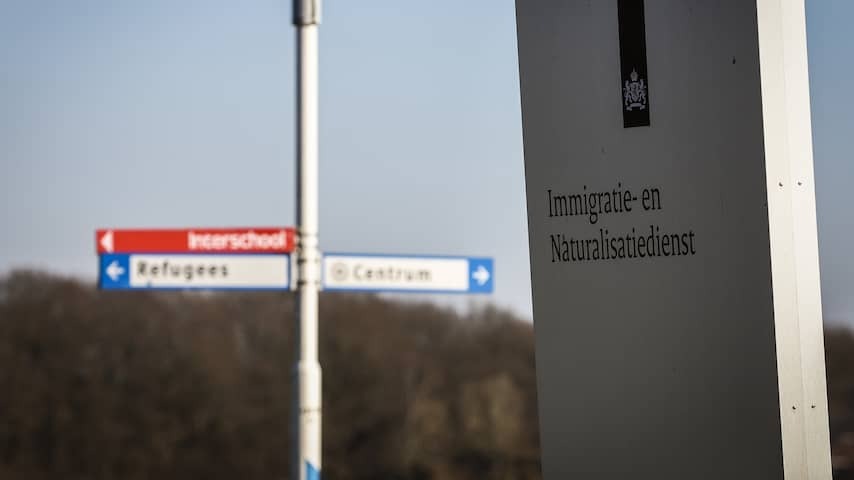
The IND (Immigration and Naturalisation Service) expects to be unable to decide on many asylum applications on time in 2026 and 2027 as well. The price tag for this is increasing considerably. In the first five months of this year, the immigration service already had to pay 25 million euros in penalty payments.
This is according to the State of Implementation of the Immigration and Naturalisation Service (IND) published on Wednesday.
The report also includes a call from the IND to abolish the penalty payments. These fines are intended to ensure that citizens do not have to wait unreasonably long for a decision on their (asylum) application. But according to the IND, this is counterproductive.
An asylum seeker who waits too long has the right to go to court. But such legal proceedings also cost the IND a lot of time. “Capacity that we can use much better for processing applications,” says Director-General Rhodia Maas of the IND.
Above all, these penalty payments take a significant bite out of the IND’s money pot. In 2024, the service paid 36.8 million euros in penalty payments. In the first five months of this year, that is already an amount of 20 million euros.
IND has had a backlog for years
The IND has had a backlog in assessing asylum applications for years. But the number of cases still to be assessed is increasing more and more. According to the IND, it will take some time to clear the backlog. Towards 2028, the service thinks it can make a “significant catch-up” by adapting its way of working and hiring more people.
At the same time, the service unilaterally reduced the decision period last week because it was probably longer than it should have been. According to the law, an asylum application must be processed within six months, but this can be extended to fifteen months in the event of a sudden increase in the number of applications.
But the European court pointed out this year that it really must be a sudden increase, and that is not the case in the Netherlands. The IND therefore decided to reduce the decision period back to six months. This will probably further increase the amount of fines than was already the case.
Also in Parliament a wish to abolish penalty payments
It will in any case already help to abolish the penalty payments, says Maas. The Hague has looked at this more often, but an earlier attempt to do so failed in court because that would, among other things, limit asylum seekers in obtaining effective legal protection.
But according to the IND, the view on the effectiveness of such a penalty payment seems to have changed. There are also “legal starting points” to regulate that abolition now, says the service.
Parties in the House of Representatives are also interested in this. SGP will also submit a proposal on Thursday during a debate on two asylum laws to abolish those penalty payments.
The SGP also argues that penalty payments are currently counterproductive because the IND spends a lot of time on them. Asylum seekers can also receive legal protection without such a penalty payment. VVD, NSC, BBB and JA21 have also signed the proposal. But whether that proposal will get a majority remains to be seen.